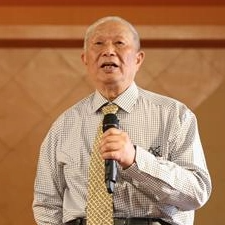Shen Fengquan

Shen Fengquan, male, born in January 1934, Han nationality, from Shanghai. The representative inheritors of the second batch of national intangible cultural heritage projects Jiangnan Sizhu.
character experience
Shen Fengquan, erhu performer, educator, national first-class actor. He is a member of the Chinese Musicians Association, the consultant of the Erhu Society of the Chinese Musicians Association, the chairman of the Erhu Professional Committee of the Zhejiang Musicians Association, the consultant of the Huqin Professional Committee of the China National Orchestra Society, the vice president of the Zhejiang National Orchestra Society, and the Zhejiang Jiangnan Sizhu Music Society. long wait.
In 1953, he was admitted to the High School Affiliated to Shanghai Conservatory of Music
In 1956, he was promoted to the erhu major of the Folk Music Department of the Shanghai Conservatory of Music, under the tutelage of Professor Lu Xiutang
Graduated early in November 1958. Worked as the chief erhu player of the folk band of Zhejiang Folk Song Troupe (now Zhejiang Song and Dance Theater)
In February 1973, he taught at Zhejiang Art School (now Zhejiang Art Vocational School) until his retirement in September 1995.
In the summer of 1986, the Jiangnan Sizhu and Erhu classes were held.
In 1992, a six-month-long Jiangnan Sizhu and Erhu Rotational Training Course was held. All the trainees came from Beijing, Tianjin, Shenyang, Xi'an, Harbin and other places, including erhu experts, graduate students and national first-class performers from the Conservatory of Music, Art Academy, and art groups. .
Achievement honor
In 1983, he participated in the Hangzhou Jiangnan Sizhu Ensemble to perform and give lectures in Hong Kong, and then went to Beijing, Tianjin and other places to tour and give lectures.
TV art film - "Jiangnan Sizhu" arranges, performs, and serves as music art director.
During his studies at the Conservatory of Music, he composed music for the modern Shanghai dramas "Red Flowers Blooming on the Ground", "The Eve of the Revolution" and "The Dark Whistle in Yangcheng".
The Jiangnan Sizhu music, which has been arranged, arranged and performed in person, has been recorded and distributed at home and abroad as records, cassettes and videotapes.
On November 2, 2021, it is planned to be selected into the public list of the qualified inheritors of the national intangible cultural heritage in Zhejiang Province. [2]
On May 23, 2022, the evaluation result of Zhejiang Province's 2021 national-level representative inheritor of intangible cultural heritage inheritance activities was qualified (public announcement). [3]
main works
books
"Jiangnan Sizhu Music Selection" Bamboo Weaving
Deputy Editor-in-Chief of "Jiangnan Sizhu Music Completion"
paper
"Analysis of Erhu Stringing Techniques from the Viewpoint of Mechanics"
"The Art of Editing and Performing Techniques of "Slow Three Six"
Arranging, arranging, composing tracks
Jiangnan Sizhu Ensemble "Little Nishang, Erhu Ensemble "Slow Sanliu", "Zhonghua Liuban"
Erhu Solo Pieces "Happy Song", "Cloud Celebration", "Pine and Cypress Evergreen", "Sing a Folk Song for the Party"
Female Solo Song "Embroidered Handkerchief"
Character evaluation
Influenced by his father and uncle since childhood, Master Shen Fengquan loved Jiangnan Sizhu music. The Jiangnan silk and bamboo music played by him is gorgeous, rich and sweet. It not only maintains the traditional performance characteristics, but also integrates various techniques of modern erhu. The addition of flowers to the melody and the decorative techniques of performance have formed a personalized artistic style, known as the Pudong Nanhui School, and the founder of the Jiangnan Sizhu Erhu Performance Nanhui School. Compilation of musical scores and audio and video recordings. It has been accepted by many music and art schools as teaching materials and spread all over the world, especially in Southeast Asian countries.
Similar artist
Involving musical instruments
Involved portfolio
Involved news
Popular artists
- 01 Zhang Xiuyan
- 02 Chen Tao
- 03 Li Muliang
- 04 Zhu Changyao
- 05 Zhang Gaoxiang
 渝公网安备 50010702504639号
渝公网安备 50010702504639号